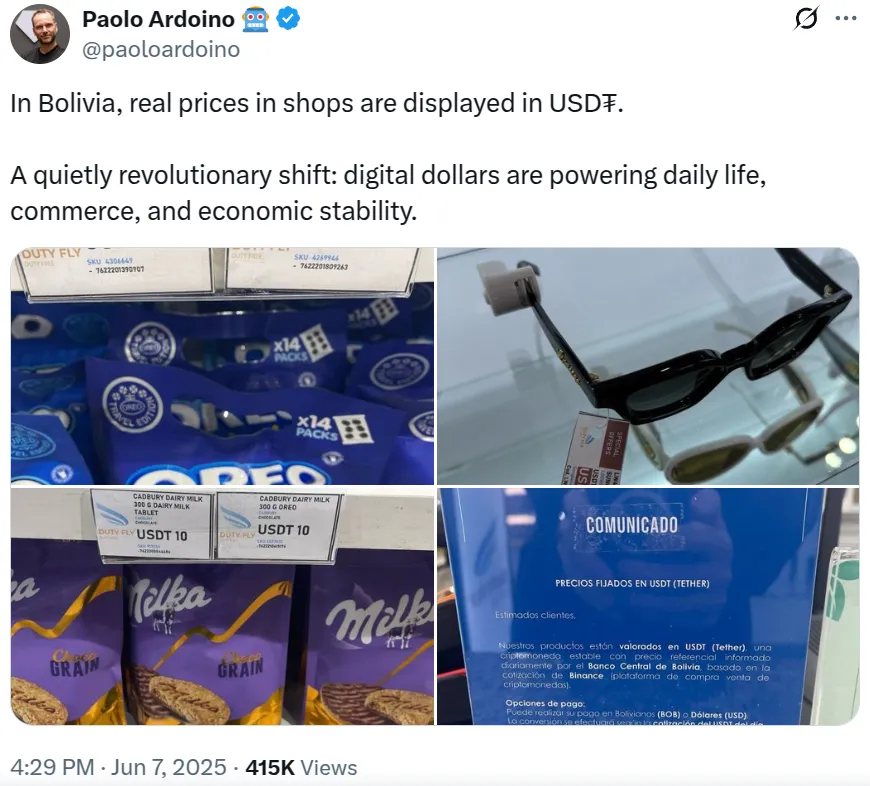💥 Bolivia Just Called Crypto a "Reliable Alternative" — Partners With El Salvador to Go Full-On Web3 🌎💸
-

In a bold shift, Bolivia’s Central Bank has officially signed an agreement with El Salvador to promote crypto as a “viable and reliable alternative” to fiat — signaling a major pivot in a country still recovering from years of economic instability.
Here’s what went down and why it matters:
 From Ban to Blockchain: Bolivia’s Crypto U-Turn
From Ban to Blockchain: Bolivia’s Crypto U-TurnUntil mid-2024, Bolivia was a strict no-crypto zone. But everything changed when the government lifted its crypto ban in June, allowing banks to process BTC and stablecoin transactions.
Now? The Central Bank is doubling down.
They just signed an indefinite agreement with El Salvador — the OG Bitcoin nation — to collaborate on crypto policy, share tools, and push adoption across both countries.
 Signatories:
Signatories:Edwin Rojas Ulo (President, Central Bank of Bolivia) Juan Carlos Reyes García (President, El Salvador’s Digital Assets Commission) Crypto Traction Is Real
Crypto Traction Is RealAfter the ban was lifted:
Bolivia recorded $46.8M in trading volume in 3 months Crypto use has doubled monthly averages from previous years $294M in volume as of mid-2025 📊Even state-owned oil and gas companies are now accepting crypto for international fuel purchases — a workaround to the country’s US dollar shortage.
 Why Crypto? Because the Fiat Well Is Dry
Why Crypto? Because the Fiat Well Is DryBolivia’s foreign exchange reserves collapsed from $12.7B in 2014 to just $165M this year. That’s not a typo — it’s a 98% drop.

As the boliviano weakens, many locals are shifting to USDT stablecoins for everyday purchases — some shops are even listing prices directly in Tether now.
 What’s Next? October Will Be Decisive
What’s Next? October Will Be DecisiveBolivia heads into a crucial general election on August 17, and the outcome could either turbocharge or derail the country’s crypto trajectory.
If no one gets a clear majority, a runoff is set for October 19.
According to Polymarket, there's only a 5% chance of a winner emerging in the first round — so expect continued volatility (in politics and markets). Why This Matters
Why This MattersWith El Salvador already running BTC as legal tender and stablecoins now mainstream in Bolivia, this partnership could spark a new LatAm crypto axis.
If Bolivia truly embraces crypto, it won’t just be for speculation — it’ll be about survival, stability, and access.
What do you think — will Bolivia become the next crypto-friendly nation, or is this just economic desperation in disguise?
 Drop your thoughts below — bullish, skeptical, or somewhere in between
Drop your thoughts below — bullish, skeptical, or somewhere in between

















